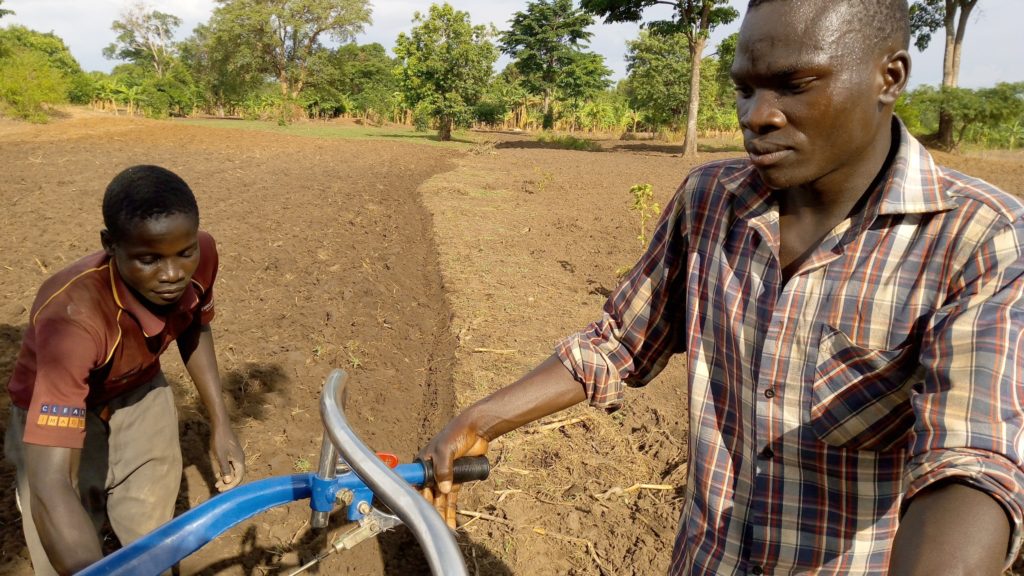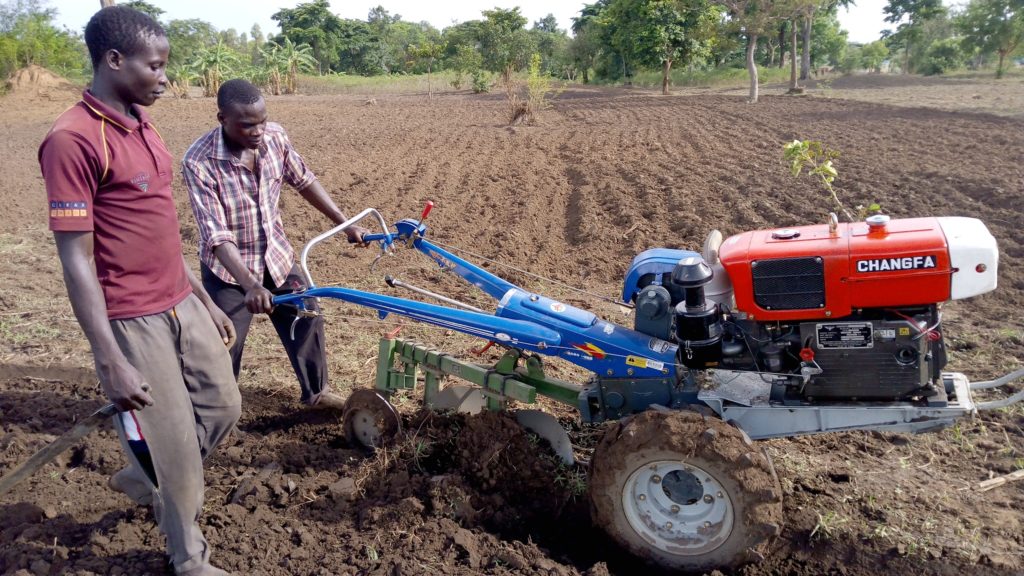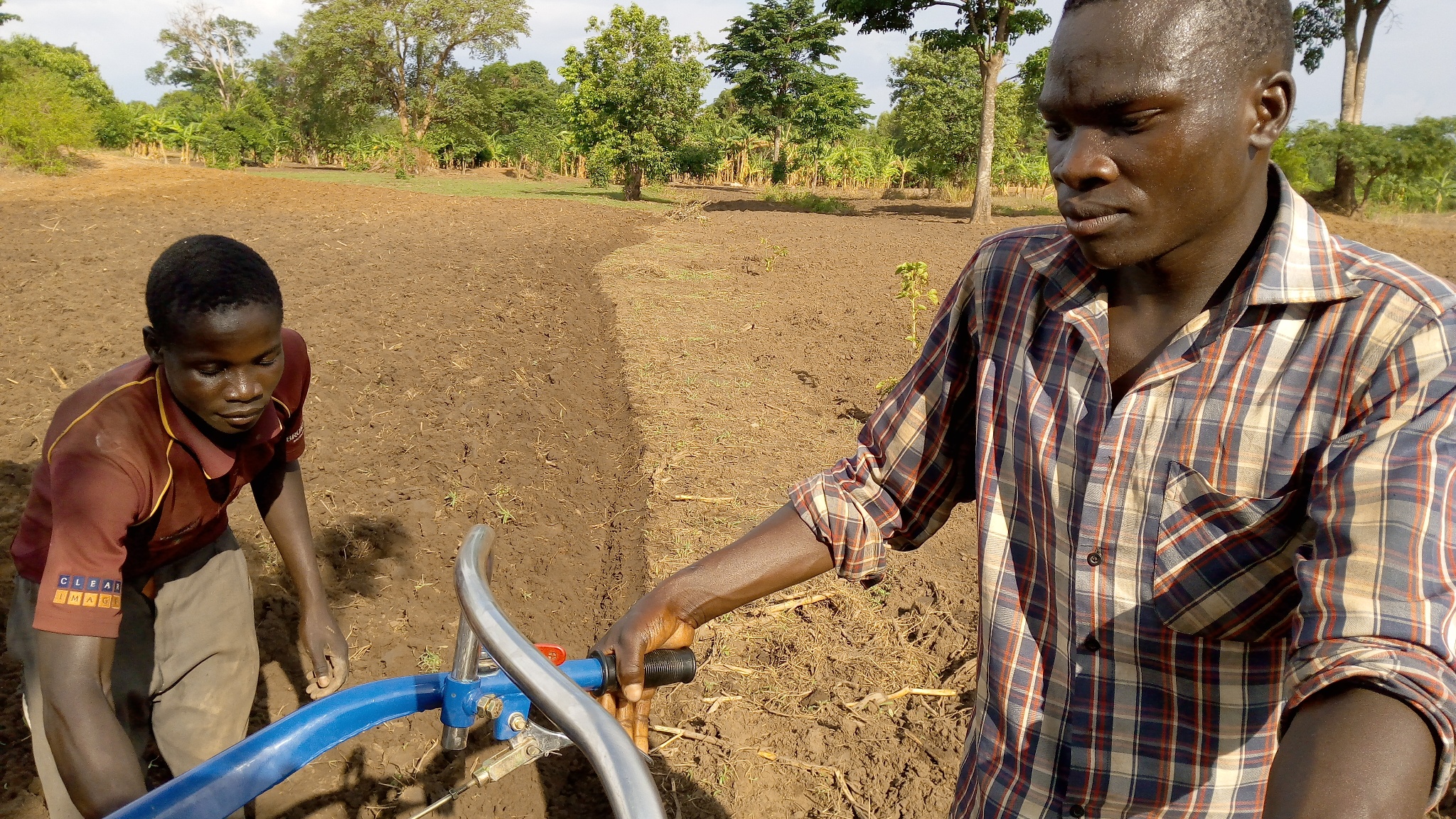
Emma and David are brothers but born from different mothers. They live in Bukomolo village. Emma is 16 and David 15 years old. Their father has three other women in addition to their mothers. Emma and David are the eldest children.
Because of the polygamous condition of their family, these boys are the bread winners. Their father spends most of his time drinking alcohol. The same condition forced them to drop out of school. Emma was in Primary Five and David Primary four. Their father is now forcing them to get women and marry
Recently when GWI launched a youth programme in Bukomolo village, Emma and David were among the first youths to register. GWI through the Agriculture Project is bringing together youths to facilitate them with equipment to use to earn an income and increase food production in their homes and at the same time to shape them into useful citizens and make their villages safer even for generations to come.

The equipment includes a hand walking tractor where youths connect with farmers and plough for them at a manageable fee. The fee caters for fuel, service of the tractor, operator and a certain percentage that remains to sustain the program. There is also groundnut sheller, and groundnut grinder creating jobs like sorting, winnowing, grinding and packing.
Emma and David have now learned to operate the tractor. “We are now secure and our family” they said.
Many of these youths are struggling with alcoholism because they have grown seeing their parents doing the same, some are suffering depression because of conditions of polygamy in their families. In such families there is domestic violence, incest, child abuse and neglect, indiscipline, and forced marriages. Such is limiting the ability of many youths to stay in school. Others are affected with HIV/AIDS which they acquired from older men or women whose husbands or wives died from the disease. There is also a lot of drug abuse and early pregnancies in these youths.
Other activities of the youth programme include health talks and film shows especially on reproductive health, football and netball games, music dance and drama, and community health involvement. There is also feminine health management involving girls to make re-usable pads.

